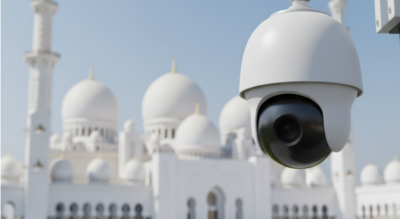
On October 19, 2025, Kuwait’s Ministry of Awqaf and Islamic Affairs issued a nationwide directive mandating that all surveillance cameras within mosques must receive prior approval from the ministry. This move places imams and muezzins under legal obligation to comply, marking a significant shift in the oversight of religious institutions across the country.
What’s happening? Mosque surveillance rules in Kuwait
Kuwait’s Ministry of Awqaf and Islamic Affairs has announced a new policy requiring all surveillance cameras in mosques to be approved by the ministry before installation. This directive, issued on October 19, 2025, mandates that imams and muezzins report any existing unapproved camera systems and prohibits unauthorized installations. The policy aims to standardize mosque operations, ensure transparency, and safeguard the facilities and worshippers.Key points:
- Any individual or organisation wishing to install or operate security cameras inside a mosque must first receive authorisation from the ministry.
- Donations of cameras must be reported before installation: if someone offers a donation of surveillance equipment, the mosque’s imam or muezzin must notify the ministry before proceeding.
- Any existing camera systems that were installed without ministry approval must be disclosed immediately.
- The imams and muezzins will be held legally accountable if they fail to notify the ministry of unapproved systems.
- The ministry states this is part of a broader effort to standardise mosque operations, protect mosque facilities and ensure the safety of worshippers.
In short: New oversight means all surveillance inside mosques now must go through official channels.
Why the change?
The ministry’s decision comes in response to concerns over unauthorized surveillance installations and the need for centralized oversight. By requiring prior approval, the ministry seeks to maintain control over security measures in religious spaces, ensuring they align with national regulations and standards. This move also addresses potential privacy issues and aims to prevent misuse of surveillance systems.Several motivations appear behind this tightening of rules:
- Protection and safety of worshippers & facilities: The ministry explicitly says the aim is to safeguard the mosque premises, maintain safety, and ensure transparency.
- Administrative control & oversight: By centralising supervision of camera systems, the ministry can ensure that installations comply with law and policy, rather than having ad-hoc or external parties setting up systems independently.
- Standardising practices across mosques: The directive emphasises the goal of standardisation of mosque operations and functioning under governmental supervision.
- Legitimacy of donations and external offers: Since mosques sometimes receive donated surveillance equipment (as happened in the past) the ministry appears to want to regulate that process tightly. For example, older reports show a corporate donation of 3,000 cameras to mosques in Kuwait from 2017.
Thus, the change reflects a move to ensure that mosque-surveillance is neither fragmented nor uncontrolled.
Impacts and practical implications
The new rules have clear implications for mosques, imams, worshippers, and donors. Under the directive, no mosque can unilaterally accept or install surveillance cameras from external parties, including companies or donors, without prior ministry approval. Transparency is now mandatory: any offer of surveillance equipment must be reported before installation, and existing systems installed without authorization must be declared. Imams and muezzins carry legal responsibility for failing to comply, elevating the policy from mere guidance to enforceable law. All systems will fall under the ministry’s administrative oversight, which will likely regulate how cameras are installed, managed, and monitored. For donors, this means that contributions of surveillance equipment will require navigation through the approval process, replacing the previous practice of direct donations or installations. Overall, the directive establishes the ministry as the central gatekeeper for all mosque surveillance. For mosques across Kuwait, this policy means that any new surveillance installations must go through the ministry’s approval process. Imams and muezzins are now legally responsible for reporting any unapproved systems and ensuring compliance with the new regulations. Donors wishing to contribute surveillance equipment must also notify the ministry before installation. This centralized approach aims to streamline security measures and maintain uniformity across religious institutions.






